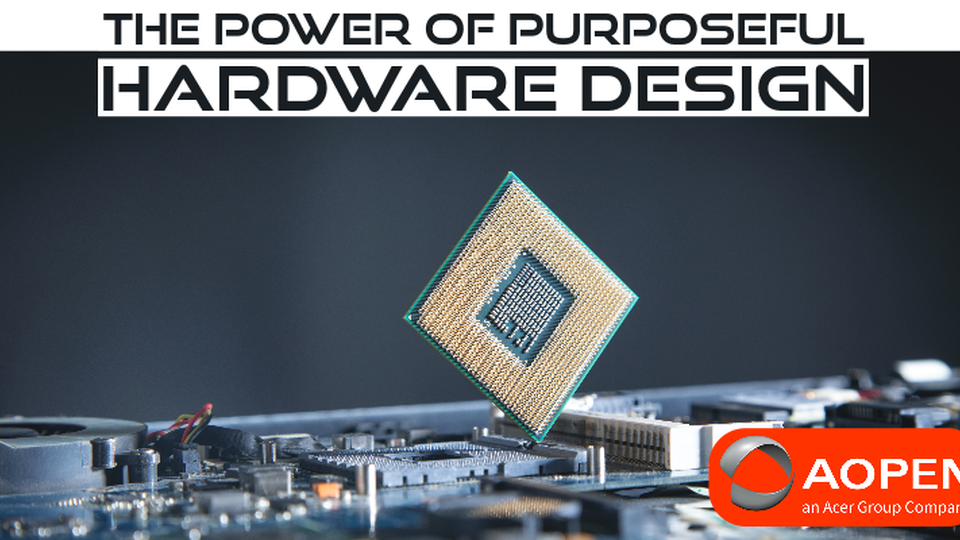Blog
The Power of Purposeful Hardware Design
Purposeful hardware design plays a vital role in business success. By selecting high-quality components, optimizing thermal management, and adhering to industry standards, purposefully designed hardware delivers consistent performance, reduces downtime, and enhances productivity

June 22, 2023
In today's fast-paced digital landscape, businesses rely heavily on technology to drive their operations. Whether it's a robust network infrastructure or cutting-edge software applications, every component plays a crucial role. However, one aspect that often goes unnoticed but holds immense significance is purposeful hardware design.
Let's explore the importance of purposeful hardware design in minimizing hardware failures, maximizing performance, and ensuring long-term reliability.
Reducing Hardware Failures: Purposeful hardware design takes into account various factors to minimize failures. From selecting high-quality components to rigorous testing, every step is carefully executed to ensure the hardware can withstand demanding conditions. Components like capacitors, resistors, and connectors are chosen for their durability and longevity, reducing the chances of premature failures that could disrupt business operations.
Maximizing Performance: Efficient hardware design plays a pivotal role in maximizing performance. It involves optimizing factors like thermal management, power efficiency, and component compatibility. By implementing effective cooling mechanisms, hardware designers ensure the system operates within optimal temperature ranges, preventing overheating and performance degradation. Thoughtful component selection and integration ensure seamless compatibility, enabling the hardware to function at its peak potential.
Ensuring Long-Term Reliability: Long-term reliability is a crucial aspect of any hardware solution. Purposeful hardware design focuses on creating systems that can withstand the test of time. It involves meticulous planning, using robust materials, and adhering to industry standards. These measures significantly contribute to the longevity and reliability of the hardware, reducing the need for frequent repairs or replacements. Businesses can rely on purposefully designed hardware to deliver consistent performance and minimize disruptions.
Customer Success Stories: Real-life examples of businesses benefiting from purposeful hardware design can provide valuable insights. Case studies and customer testimonials showcase how purposefully designed hardware solutions have improved efficiency, reduced downtime, and enhanced overall productivity. These success stories testify to the importance of purposeful hardware design and its positive impact on businesses across various industries.
Choosing the Right Hardware Partner: Selecting a hardware partner that prioritizes purposeful design is essential. Look for a company with a proven track record in research and development (R&D), engineering expertise, and a commitment to quality. A reliable hardware partner will work closely with you to understand your unique requirements and provide tailored solutions that align with your business goals.
Purposeful hardware design minimizes failures, maximizes performance, and ensures long-term reliability. By investing in purposefully designed hardware solutions, businesses can experience improved productivity, reduced downtime, and enhanced customer satisfaction. When choosing a hardware partner, prioritize companies that prioritize purposeful design, extensive R&D, and a commitment to delivering reliable, high-performance solutions.
Remember, purposeful hardware design is not just about the components; it's about the meticulous planning, testing, and expertise that goes into creating a reliable and efficient hardware solution.
Included In This Story
AOPEN (An Acer Group Company)
AOPEN is an Acer Group company that specializes in small form factor commercial, medical, and industrial computing, as well as touch display technology for digital signage, kiosks and POS solutions as a leading global hardware manufacturer.
 ChatGPT
ChatGPT Grok
Grok Perplexity
Perplexity Claude
Claude








